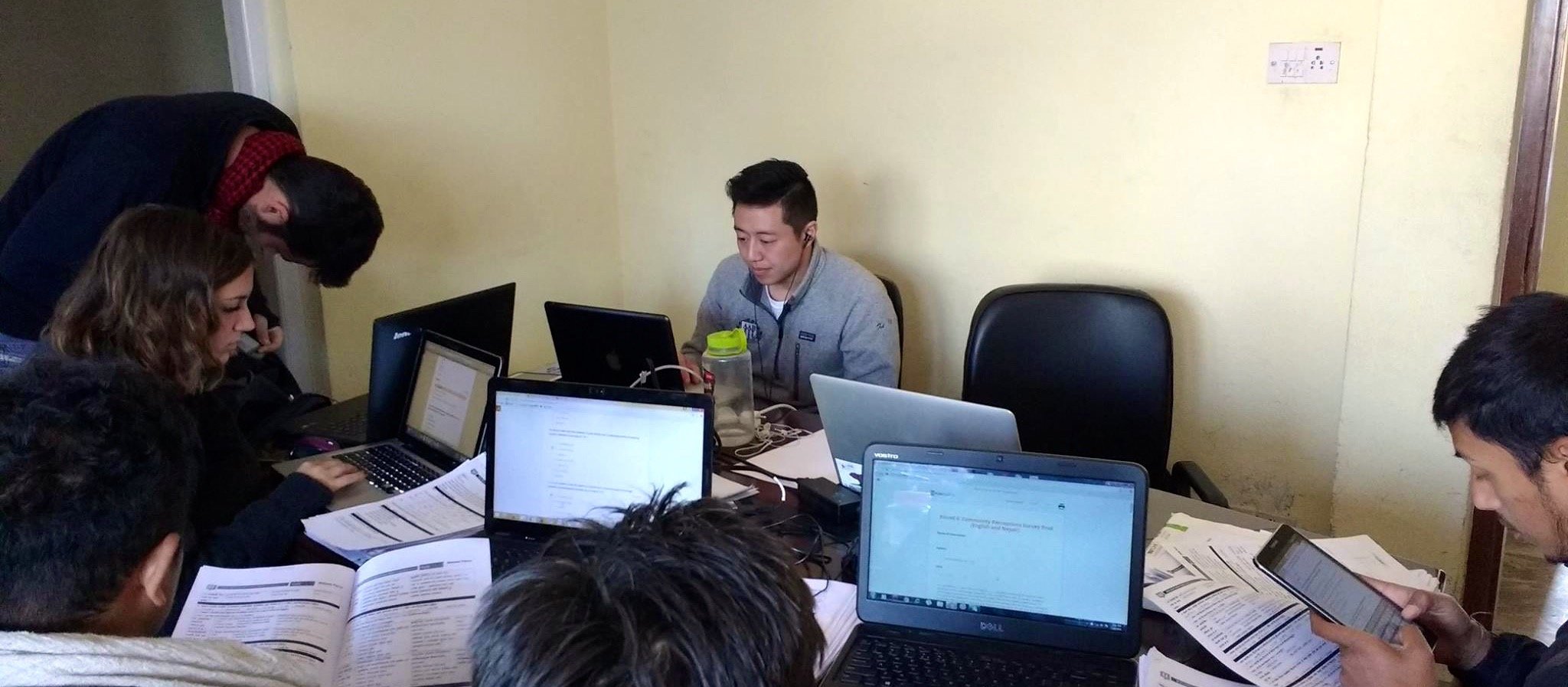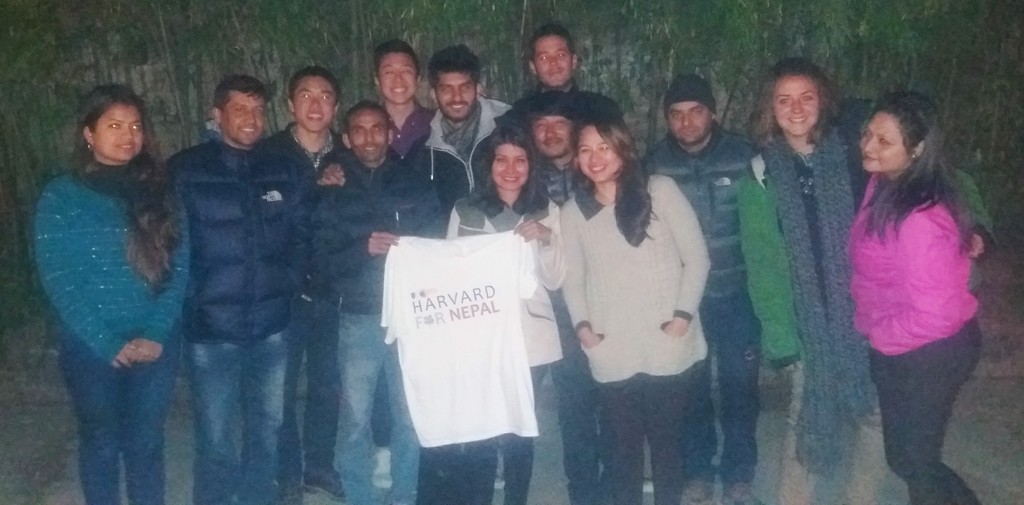NEWS
February 17, 2016

IN BRIEF
By: Patrick Xu, Harvard University. This blog post was originally published by Local Interventions Group. Austin Wu, a fellow Statistics concentrator and good friend, and I devised a senior research project based off of our existing interests: can we study how data has been used in the disaster relief process, and how data can effectively improve and eventually optimize disaster relief? Given the intensity of damage of Nepal’s most recent earthquake disasters, as well as the coincidental timing, Austin and I began to reach out to NGOs delivering aid in Nepal to begin to build a narrative of how data can […]
SHARE
By: Patrick Xu, Harvard University. This blog post was originally published by Local Interventions Group.
Austin Wu, a fellow Statistics concentrator and good friend, and I devised a senior research project based off of our existing interests: can we study how data has been used in the disaster relief process, and how data can effectively improve and eventually optimize disaster relief? Given the intensity of damage of Nepal’s most recent earthquake disasters, as well as the coincidental timing, Austin and I began to reach out to NGOs delivering aid in Nepal to begin to build a narrative of how data can be used to aid in the disaster relief process. After a string of emails, we were put in contact with Pranav Budhathoki and Narayan Adhikari, and we arranged an agreement for Austin and I to help with a 5-day analytics project for their two organizations. Now, nearing the end of the project, we reflect on what has been an incredibly positive experience.
We met early on our first day to discuss the project, and we were warmly greeted by a number of the members of the team. Pranav detailed the “Follow the Money” questions within the surveys, and he tasked us to analyze those questions to the best of our ability. This hands-off approach remained a consistent theme throughout our stay at LIG, as Pranav always opened himself up to questions, but allowed us to figure out and analyze what we deemed most important.
All in all, Austin and I analyzed five main questions and any relevant sub-questions that followed. These questions all focused on citizen perception of disaster relief and aid. We started off with basic methods, such as averages and trends, to explore potentially interesting avenues. This exploratory analysis proved to be crucial for our learning process in Nepal: for example, it revealed the prevalence of perceived corruption in Nepal, which Austin and I had underestimated heavily before entering the country. Another example that surprised us was the sheer number of NGOs in both Kathmandu and Nepal in general – later, we would learn from our colleagues that a good number do not actually serve the purposes for which they state.
After detailing the trends and summarizing our basic findings for these five questions, we started to explore a very interesting idea: can one predict satisfaction based off of a small set of factors? Can we then optimize these factors to optimize satisfaction? Our research shows that we can somewhat confidently predict satisfaction, which is very interesting. This latter question, however, evidently will take much more work to even begin to answer, but we believe that it may be at the crux of perfecting the delivery of aid after a disaster.
In addition to the work we have done, we have learned a ton from simply listening to our wonderful colleagues talk about their experience and knowledge of the region. We primarily spent time with Quincy and Sara, employees of the Local Interventions Group and Accountability Lab, respectively. Through these conversations, we have learned an incredible amount on a variety of topics we really had very little exposure to previously, such as the corruption in Nepal, the effects of the trade blockade, aid delivery in rural areas, the ulterior motives of NGOs, the problems with the aid and voluntourism industry, and finally their thoughts on how to do good well. These discussions have taught us an incredible amount, and opened our eyes to many ideas that we had never even considered.
Another wonderful experience during our time here was Integrity Idol: it was incredible to see Narayan and his team put together an event that seeks to fight corruption by “naming and faming” honest workers in government. Although the event was in Nepali and neither Austin nor I speak the language, we gained a lot from the experience by simply seeing how many excited people there were, banding together to try to fight corruption by celebrating honesty. Throughout our stay here, Austin and I have realized how large of a problem corruption can be, and how corruption can truly inhibit and cripple the growth, if not survival, of a country. At points, we questioned what could be done in a country where corruption was so rampant, so it was inspiring to see one of the wonderful solutions that Narayan and his team at the Accountability Lab put forth. This event pushed Austin and I to think more about what can be done, and think outside the box on potential solutions.

Austin and Patrick with the Helpdesk team.
Finally, Austin and I have also loved our experience with the Local Interventions Group. Everyone in the office has been incredibly considerate and welcoming, and the workplace is so enjoyable. We have been greeted with mid-afternoon snacks on the rooftop, random mid-day tea breaks, mini celebrations over a working heater or the revival of WiFi, and more, reminding us that while the work we do is incredibly important, we can also have fun and not take ourselves too seriously. With Sara working furiously with data entry, or Quincy staying up late at night to finish an important report, one final message we have gleaned is that while truly impactful work is difficult, it is possible and enjoyable with perseverance, teamwork, and good hearts. The work oftentimes comes without fame or glory, but it is incredibly fruitful. It takes true dedication and love to push the world to eventually become a better place.
